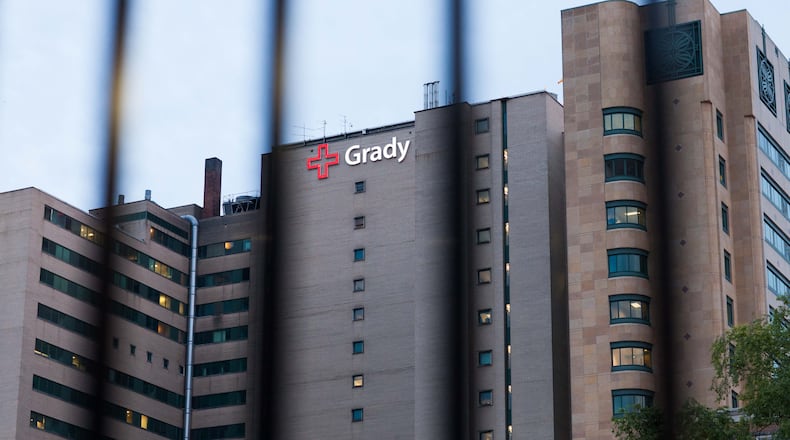Six rape victims who were improperly charged by Grady Memorial for free forensic exams were accidentally billed again, hospital officials confirmed Friday.
Grady was trying to refund patients when an oversight led its automated billing system to re-send bills instead, hospital officials said. Earlier this month, an Atlanta Journal-Constitution investigation revealed that the hospital had charged more than 730 victims to examine them for evidence and take DNA samples.
Hospitals in Georgia are supposed to provide rape exams free to victims and send the bills to a special state fund. Billing them is considered as unfair as a shooting victim paying police to dust the weapon for finger prints.
The mother of one victim said she was shocked to receive a nearly $300 bill for a 2012 forensic exam that she and her daughter paid for years ago. On Thursday, she tried to call Grady three times in a row to ask why, she said.
Twice, she was placed on hold for 20 minutes then transferred to a full voice mail box. On her third try, the office was closed.
"My first reaction was that this is just more of the same. They’re not knowing what we’re doing," the mother said. "And then of course, when I called to find out about it, the fact that they not only put me on hold for 20 minutes each time, but put me in voice mail made me think that they are very used to putting up blockades so people can't get any answers."
The AJC is not naming the victim's mother because the newspaper typically does not identify victims of sexual assault or publish information that can be used to identify them.
The hospital will call the six impacted patients and apologize for any inconvenience the mistake may have caused, said Richard Rhine, a Grady senior vice president who handles revenue and billing issues. They should receive refund checks by Wednesday.
“We absolutely want this to be done correctly. It is our desire to refund every patient,” said Rhine. “It was just an unfortunate issue.”
Grady, the sole rape crisis center for Fulton County's nearly 1 million residents, has failed to follow other laws meant to protect victims. In June, the AJC found that the hospital conducted grueling and invasive forensic exams on as many as 1,500 rape victims, then locked the evidence away — even when patients asked that the rape kits be shared with investigators. The evidence could have been used to identify suspects or track serial rapists.
State law requires hospitals to report and provide evidence on injuries that may be tied to a crime.
About the Author
The Latest
Featured



